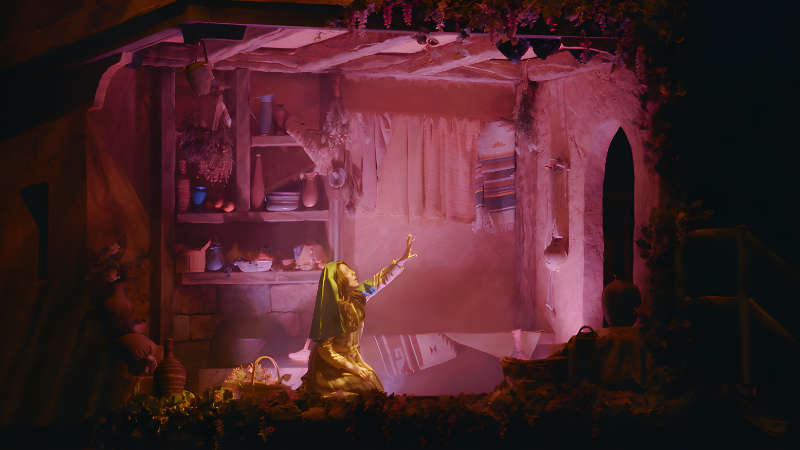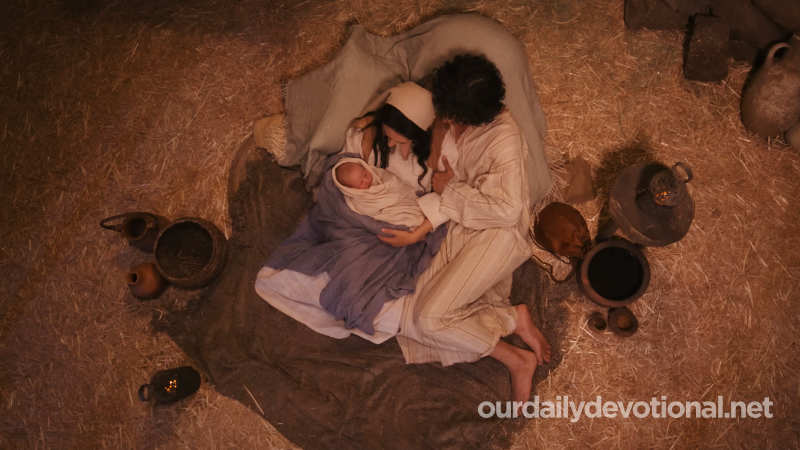It is a word related to "believe"; Of course, both concepts cannot be separated.
In the OT the word "faith" appears twice in its proper sense (Deut. 32:20; Hab. 2:4). The words in Hebrew They are "emun", "emunah"; but "aman" is frequently translated as "believe." The first time this verb appears in the OT is when it is used of Abraham: "And he believed in the Lord, and it was credited to him as righteousness" (Gen. 15:6).
This is what Paul relies on in Rom. 4, where the faith of the believer is counted as righteousness, drawing the conclusion that if anyone believes in Him who raised Jesus the Lord from the dead, he will be counted as righteousness.
This can be called "saving faith." It is trust in God placed in his word; It is believing in a person, as Abraham believed in God. "He who believes in the Son has eternal life" (John 3:36).
There is no virtue or merit in faith itself; What it does is link the soul with the infinite God. Faith is indeed a gift from God (Eph. 2:8). Salvation is on the principle of faith, in contrast to works under the law (Rom. 10:9).
But faith is manifested by good works. If someone says that he has faith, it is reasonable to say to him: "Show me your faith" by your works (James 2: 14-26). If, on the other hand, faith does not give evidence of itself, it is described as "dead", totally different from true and active faith.
A mere mental assent to what is stated, as a mere matter of fact, is not faith. Thus, faith encompasses belief, but goes further than it, giving itself in a vital way to its object.
The natural man can believe a host of truths. «You believe that God is one; you do well. The demons also believe and tremble” (James 2:19). But believing personally, with personal involvement, that is, faith, gives joy and peace.
There is also the power and action of faith in the Christian's path: "We walk by faith, not by sight" (2 Cor. 5:7). We see this faith exhibited in the lives of the OT saints, sung in Heb. eleven.
The Lord frequently had to rebuke his disciples for their lack of faith in his daily walk. The believer should have faith in the living God regarding all the details of his daily life.
FAITH is sometimes mentioned in the sense of "the truth", what has been recorded, and what Christians have believed, for the salvation of the soul. For this reason Christians should contend effectively so as not to lose it.
This is a fundamental deposit. There are many false prophets who have gone out into the world, and who have crept in secretly to preach destructive heresies, denying the person and work of Jesus Christ (1 Peter 2:1; Jude 3, 4).
“Reason” has often been presented as opposed to faith. However, this is a false position. Faith accepts a revelation from God about subjects that man cannot know on his own. Man can only investigate that which he has placed under his power.
Reason is that faculty by which man can, once he has data, classify these data and draw certain consequences from them. He cannot, by himself, obtain data, but rather work on it. There is data that man can obtain through an investigation of his environment.
But it is not "reason" that can tell you that this is all existing reality. Reason can never deny the possibility or factuality of a revelation from God. He can't even pretend.
If in the name of reason one attempts to deny Revelation, rationality is abandoned for that very reason, and one falls into rationalism, the totally unjustified attribution of an absolute character to reason, as the final judge and arbiter.
It is not reason, then, that pushes man to deny Revelation, but disbelief, moved by enmity against God (cf. Rom. 8:7). The chaos of human-made religions and philosophies is proof of this. Due to the fall, the entire human being has been plunged into darkness.
Just as his body is doomed to the grave and his heart is capable of the worst feelings, his reason has been falsified and his intelligence darkened. Paul said of the pagans of his time, Greeks and Romans: "Professing to be wise, they became fools" (Rom. 1:22).
Modern man has not advanced anything, despite all the advances of science regarding the sensible world. Things that concern faith are not naturally accessible to him, because "they are madness to him, and he cannot understand them"; but God is willing to reveal them by his Spirit (1 Cor. 2:9-16).
It is then that man's intelligence is illuminated, finding the solution to the most vital problems of existence, and that his regenerated reason finds its true place by being illuminated and directed by faith.
The conflict is not, then, between reason and faith, but between reason working in a mental scheme of disbelief and rebellion against God and his revelation in the face of informed reason, illuminated and directed by joyful confidence in the God who has spoken, revealing to Himself His justice, love, and purposes in Christ Jesus, in time and eternity.
Meaning of FAITH
It is a word related to "believe"; Of course, both concepts cannot be separated.







